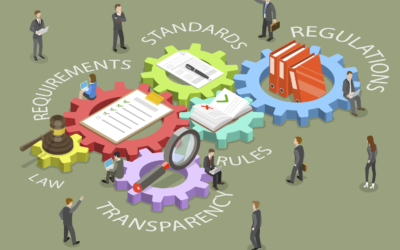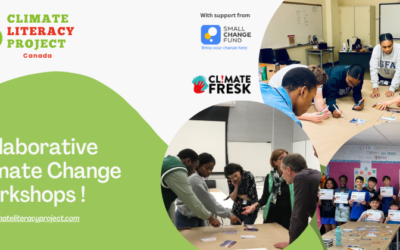From the Canadian Innovation Space. In May 2018, leaders from around the world came together for True North, a two-day conversation about the intersection of humans and technology. Throughout the two days, True North leaders from private business, public-sector, government, academia and startups collaborated to deeply examine the impact of technology and redefine the values that guide technological innovations.
The uncertainty inherent in the evolution and development of technology creates the opportunity for all stakeholders to integrate the wisdom and lessons learned from history, philosophy and literature to ensure ethical decision making as the future unfolds. After studying national and global data from research conducted by Deloitte and IPSOS, and hosting open discussions through workshops and open-forums, the first iteration of a Tech for Good Declaration was crafted.
Technology has an impact on all aspects of life, the environment, and all sectors, all organizations and all peoples. This document is relevant for all organizations that develop, implement and make use of technology. This is a living declaration built to create an ongoing dialogue between all Canadians about the meaning of Tech for Good, a set of guiding principles that all aspiring organizations can follow to create and use technology for the good of humanity and of the planet that sustains us.
This document is meant for companies and individuals to use to implement the principles of the Tech for Good Declaration. Please feel free to share.
BUILD TRUST AND RESPECT YOUR DATA.
We promise to manage and use your data like we would expect others to use our own. The use and sale of big data is the lifeblood of many advanced technologies such as AI and Machine Learning. We actively consider how this data will affect customers and our communities, and acknowledge that every stakeholder has the right to understand exactly how their data is being used. If that changes over time, we’ll tell you in a way that is simple to understand.
BE TRANSPARENT AND GIVE CHOICE.
We are committed to taking proactive steps to gain informed consent from individuals using our technology. Emerging technology has the potential to make significant improvements to quality of life, however we believe humans should be given the option to manually override the technology and have the final say. We won’t wait for policy and legislation to create meaningful mechanisms for transparency and consent.
RESKILL THE FUTURE OF WORK.
We acknowledge that the commercialization of new technologies will have a significant impact on jobs around the world. We believe that while technology will displace many jobs, it will also create an abundance of new opportunities and jobs. Our organization is steadfast to partner with others to reskill talent to pivot careers and actively build the workforce of the future.
LEAVE NO ONE BEHIND.
As an organization committed to using tech for good, we recognize our own biases and prejudices can be unconsciously incorporated in the creation and use of technology. We pledge to ask hard questions about our own prejudices, and deliberately incorporate diversity and inclusion into the creation and use of technology to ensure the benefits are accessible to every person, regardless of ethnicity, gender, economic status, age, geographic location, including Indigenous peoples on whose land we often work, live, and play.
THINK INCLUSIVELY AT EVERY STAGE.
Ethics are not just an afterthought, add-on, or checklist to fill out at the end of a project. In all development and use of technology, we will consider the broader social context of our products and services, and make this consideration part of our ethos. This means not only thinking about diversity of race, gender, and class, but also taking into account environmental, social, and psychological impacts. Thinking inclusively is creatively cross-disciplinary; it involves not just the sciences but also the arts.
ACTIVELY PARTICIPATE IN COLLABORATIVE GOVERNANCE.
As emerging technology transforms our world, we pledge to actively collaborate with industry, consumers, governments, academia and society to make better and more ethical decisions. Our loyalty to using tech for good will support government to create new rules, policy and guidance concerning matters of privacy, transparency, inclusivity, accessibility and inequality before they become systemic problems.
CONTINUING THE DISCUSSION: QUESTIONS THAT STILL NEED ANSWERS
The Tech for Good Declaration is a living document and symbolizes the beginning of a global conversation. Big questions are still unanswered and require input from communities well beyond the technology industry. Below are questions to help prompt further discussion and stimulate the reflection required for the Tech for Good Declaration to achieve its potential and alignment between industry, government, academia and citizens of the world.
If we believe our businesses and technologies must “do good,” how can business leaders understand and define what “good” means?
What might ethical leadership look like in practice when it comes to AI and other advanced technologies?
How can business leaders build ethics into their organization in a way that’s inclusive and continually reflective of the organization’s environment, employees, and broader society?
How do we decide what data belongs to the individual?
Are businesses obligated to ensure users provide informed consent of data usage that goes beyond current practices?
How can business leaders create trust in the technologies consumers are using?
How should business leaders approach the issues of job transformation and displacement?
How can businesses and developers ensure that new technologies don’t perpetuate bias?
How can developers anticipate and mitigate the potentially harmful outcomes of their technology?
How can AI be used to promote inclusivity?
What role do governments have in ensuring new technologies are deployed in ways that benefit all citizens equitably, not only a privileged segment of the population?
How should business leaders engage with policy-makers and regulators about technology issues?
What is the role of policy-makers and regulators in advancing technology and business?
Source – Deloitte: Ethics in the age of technological disruption (2018). Authors: Peter Barr, Shahene Patel and Justin Carpenter







